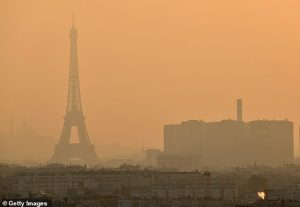Climate Paradox: Cleaner Air Is Accelerating Global Warming
In a startling climate paradox, new research reveals that reducing air pollution has inadvertently accelerated global warming. Scientists have discovered that cleaner air makes clouds less reflective, allowing more solar radiation to reach Earth’s surface.
Key Findings
- Clouds over the Northeastern Pacific and Atlantic have become 3% less reflective per decade
- Approximately 70% of this reduced reflectivity stems from air pollution reductions
- This effect may be causing scientists to underestimate current warming trends
University of Washington researchers analyzed 20 years of satellite data from 2003-2022, focusing on rapidly warming ocean regions. Their findings, published in Nature Communications, highlight a critical trade-off between public health and climate regulation.
‘When you cut pollution, you’re losing reflectivity and warming the system by allowing more solar radiation to reach Earth,’ explained lead author Knut von Salzen.
The Pollution-Cloud Connection
Air pollution particles serve two crucial functions in cloud formation:
1. Enhanced Reflectivity: Small pollutant particles provide surfaces for water droplets to form, creating more numerous, smaller droplets that make clouds brighter and more reflective.
2. Cloud Longevity: With fewer pollutants, cloud droplets grow larger and fall as precipitation more quickly, reducing overall cloud cover.
Potential Solutions
Researchers emphasize that increasing air pollution isn’t the answer, given its devastating health impacts causing millions of premature deaths annually. Instead, they’re exploring alternative approaches like marine cloud brightening.
‘You could think of it as replacing unhealthy pollutant particles with another type of particle that is not a pollutant—but that still provides a beneficial cooling effect,’ explained atmospheric scientist Robert Wood.
However, scientists caution that such geoengineering approaches require extensive safety testing, as recent studies suggest they could disrupt weather patterns or worsen climate change.
The research underscores the urgent need to reconsider climate mitigation strategies, as warming appears to be progressing faster than previously estimated.









